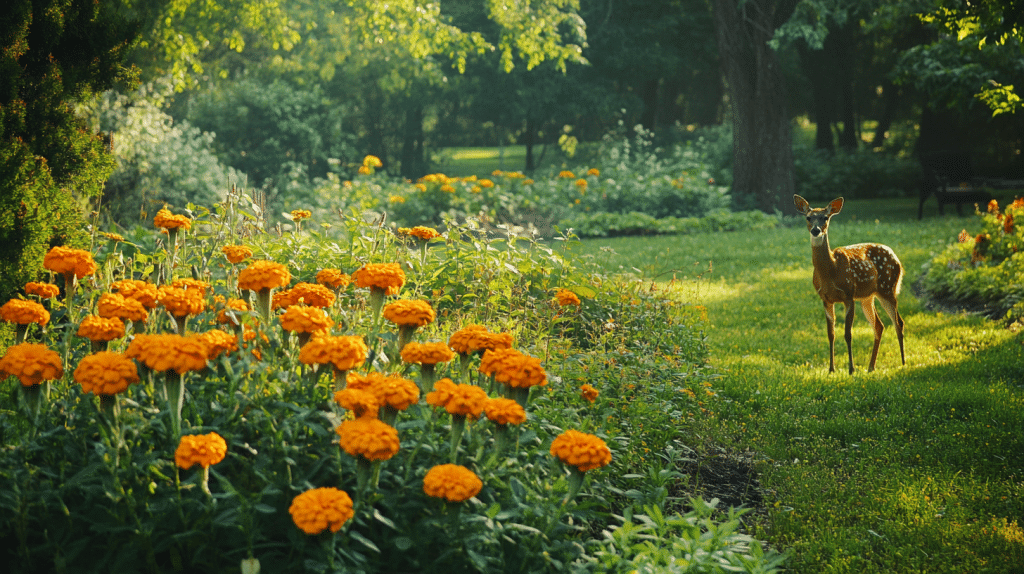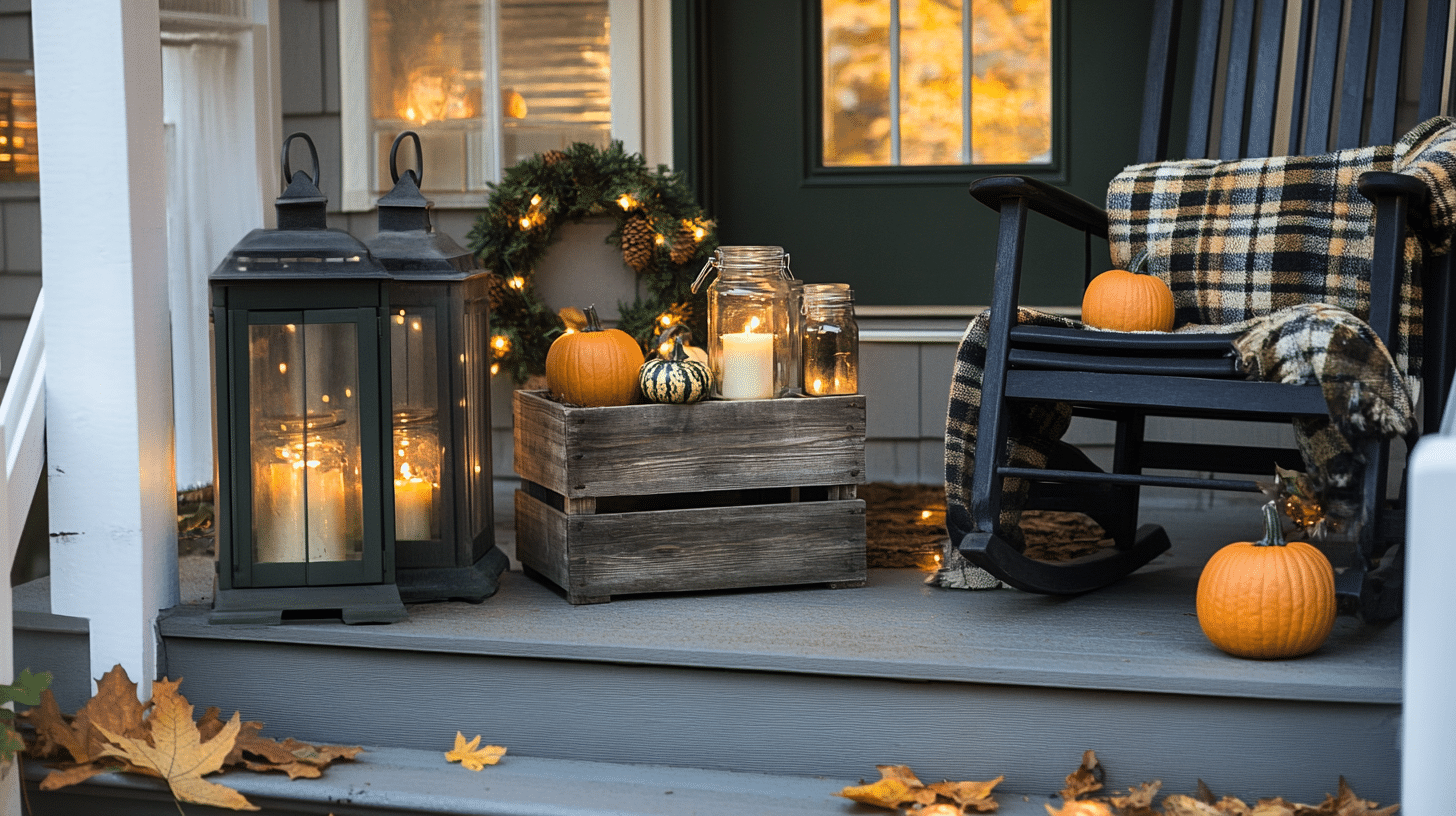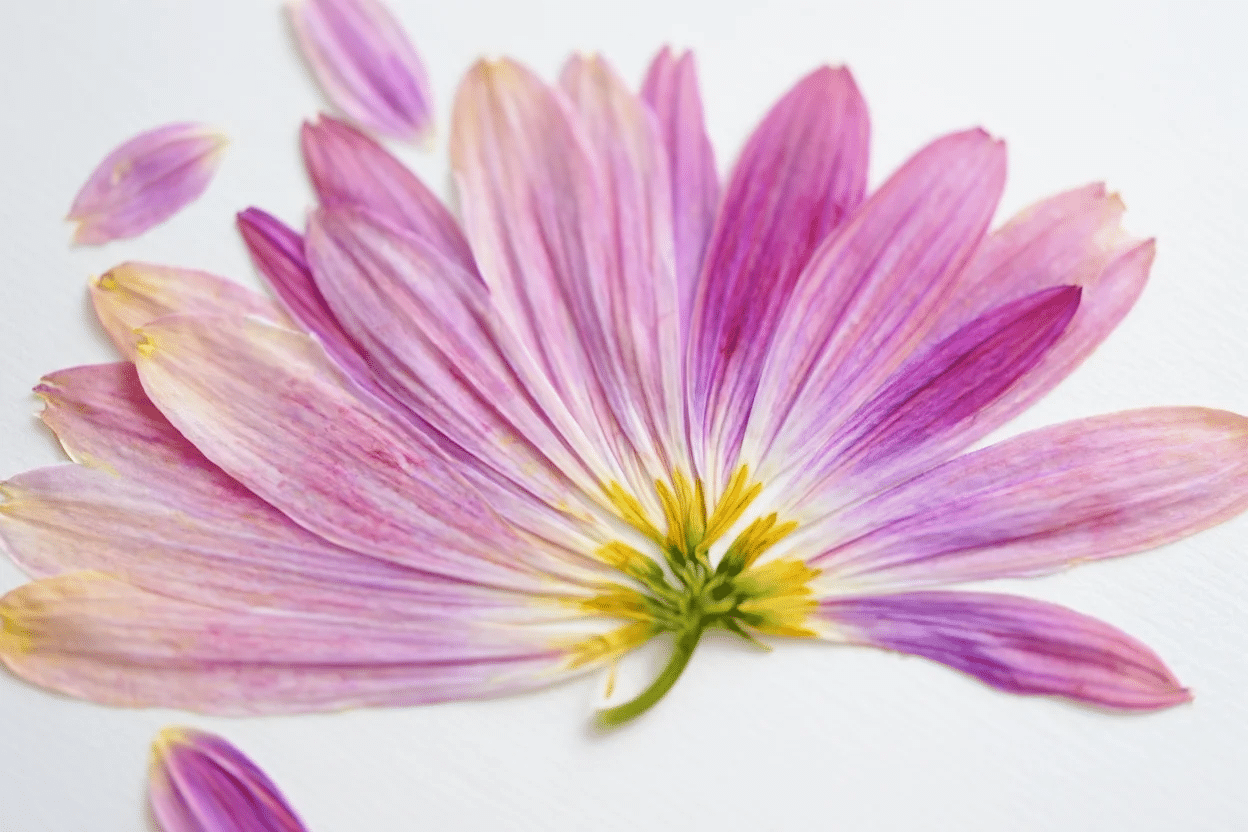Are you struggling with deer munching on your garden? You’ve probably heard that marigolds might be a solution. But the question remains: are marigolds deer resistant?
In this blog, I’ll explain whether these bright, cheerful flowers truly keep deer away or if they’re just another myth.
We’ll look at why marigolds are often considered deer resistant, the different varieties you can grow, and how they compare to other plants known for their deer-deterring properties. Plus, I’ll share some tips on how to grow marigolds successfully, even if you’re not a seasoned gardener.
By the end, you’ll have a clear understanding of whether marigolds are the right choice for your garden. So, let’s get into it!
Are Marigolds Deer Resistant: What You Need to Know
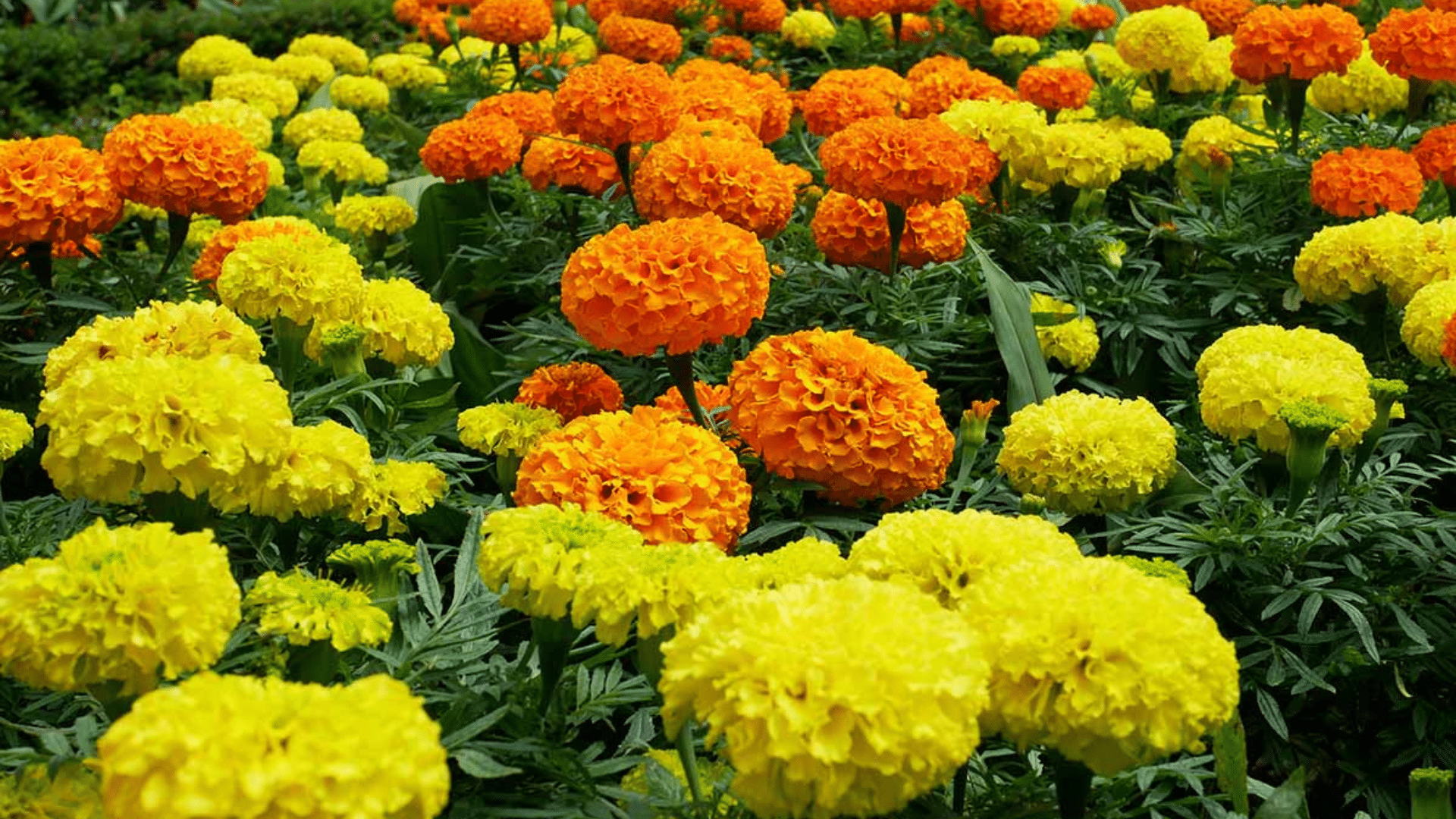
When it comes to deer-resistant plants, marigolds are often touted as a solution. But the truth is, are marigolds deer resistant? The answer isn’t entirely clear-cut.
While marigolds have a strong scent that many deer find unpleasant, they are not completely deer-proof. Some gardeners find success with marigolds as a deterrent, but deer may still nibble on them, especially if other food sources are scarce.
Marigolds’ resilience against deer can also depend on the specific variety and the local deer population. In general, their pungent aroma and bitter taste are key factors that can discourage deer from munching on them.
However, if you’re looking for a guaranteed solution, combining marigolds with other deer-resistant plants may be your best bet.
Why do Deers Avoid Marigolds
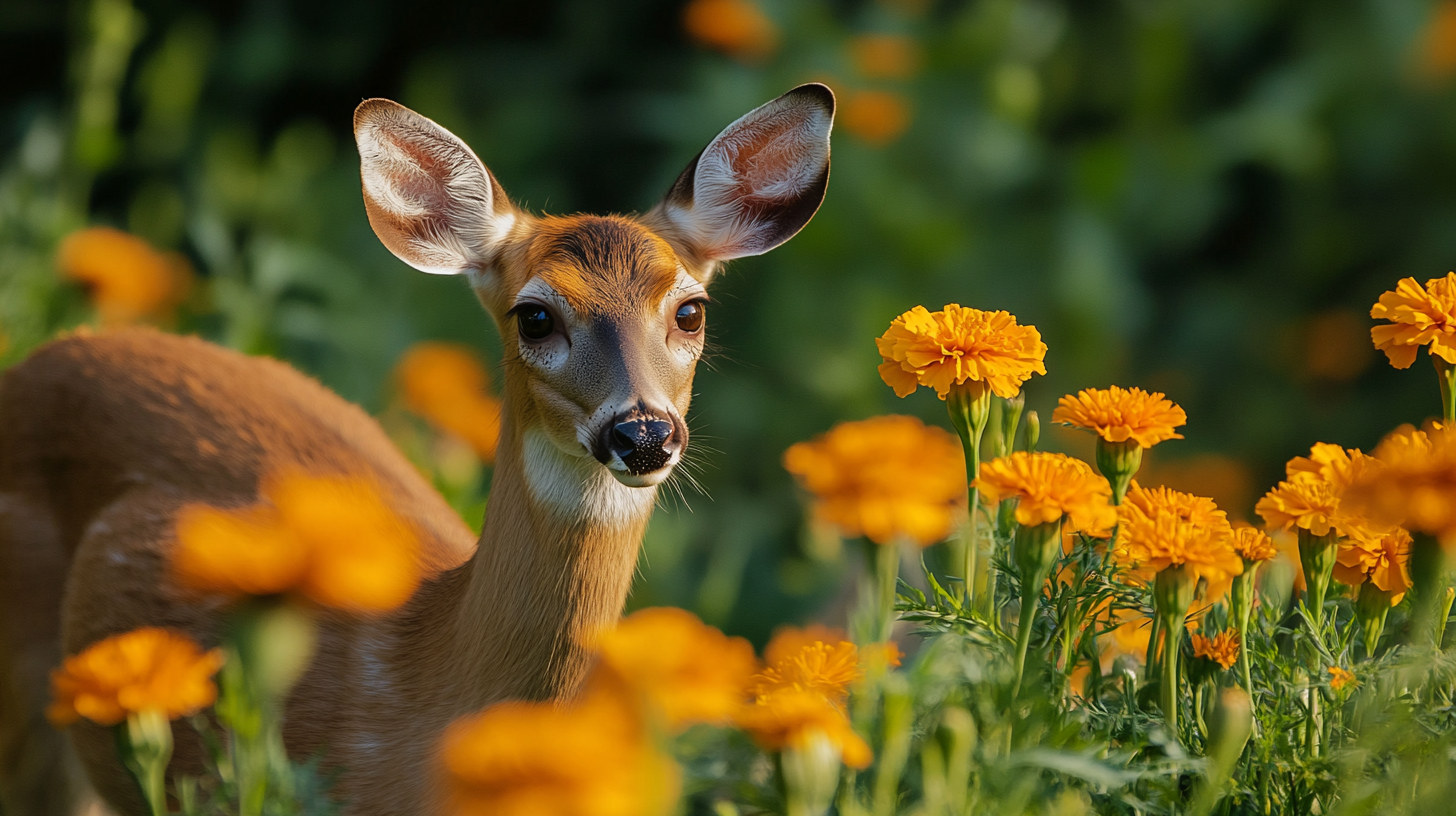
There are several reasons why deer tend to steer clear of marigolds. Let’s look at the science behind why are marigolds deer resistant to some extent, and what makes them less appealing to these garden visitors:
1. Strong scent
Marigolds emit a strong odor that many animals, including deer, find unpleasant. This pungent smell is due to the compounds in the flowers that act as natural repellents, making the plants less appealing to deer.
2. Bitter taste
The taste of marigolds is another factor that discourages deer from eating them. When deer do try to munch on marigolds, the bitter taste often leads them to abandon the plant. This natural deterrent helps keep the flowers safe from grazing.
3. Lack of nutritional value
Marigolds are not high in nutrients compared to other plants. Deer prefer plants that provide them with more energy and nutrition, making marigolds an unappealing option.
4. Bright colors
The bright yellow, orange, and red hues of marigolds might not attract deer, as they are not drawn to vibrant colors the way some other creatures might be. While the colors are attractive to humans, they don’t offer much in terms of appeal for deer.
5. Sticky resin
Marigolds release a sticky resin when their leaves or stems are disturbed. This resin can irritate the sensitive noses and mouths of deer, further discouraging them from grazing on the plants.
6. Natural repellent compounds
Marigolds contain certain chemicals, such as pyrethrins, which are known to act as insect repellents. While these compounds are designed to ward off insects, they also seem to discourage deer and other herbivores from eating the plants.
7. Low palatability
Marigolds have an unappetizing texture, making them less desirable to deer. The leaves and flowers tend to be tough and coarse, which deer tend to avoid in favor of more tender, easily chewable plants.
8. Deer’s memory
Deer are creatures of habit and have a good memory when it comes to unpleasant experiences. If they encounter marigolds and find them unpalatable or irritating, they may avoid them in the future.
In conclusion, while marigolds may not be entirely deer-proof, their strong scent, bitter taste, and other factors help explain why are marigolds deer resistant for many gardeners.
Understanding these traits can help you make the most of marigolds in your garden while reducing deer damage.
Best Marigold Varieties Known for Deer Resistance
If you’re looking for marigolds that stand up well to deer, choosing the right variety is key. Some marigold varieties are better known for their deer resistance than others.
Here are varieties that have earned a reputation for keeping deer away:
African Marigold (Tagetes erecta)
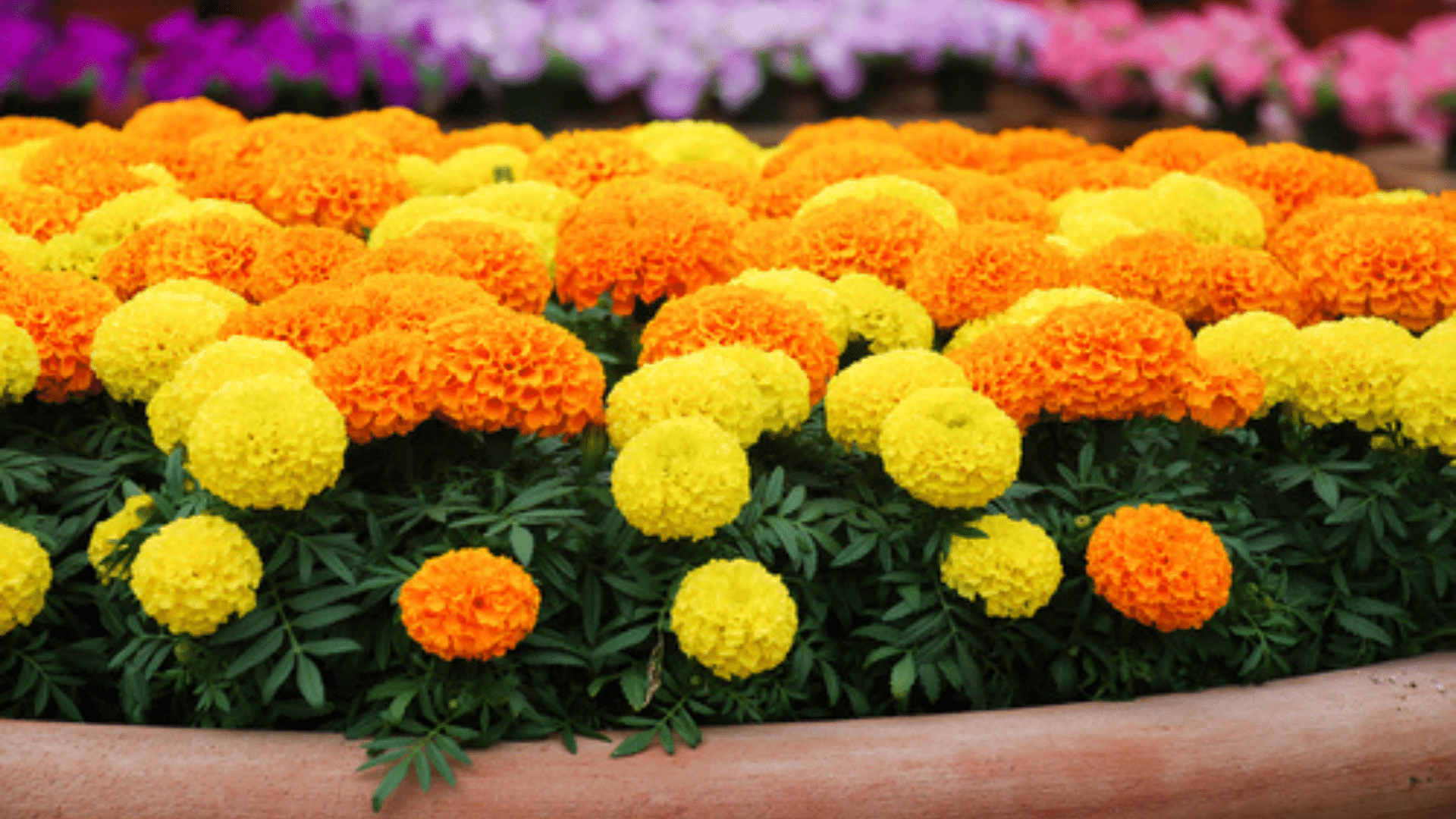
African marigolds are one of the largest and most lively marigold varieties. They’re also highly resistant to deer due to their strong scent and large, dense blooms.
- Light: Full sun, at least 6 hours of direct sunlight daily.
- Moisture: Moderate watering; prefer well-drained soil.
- Soil: Slightly acidic to neutral, well-drained soil.
- Zones: 2-11.
- Features: Large, bright flowers, ideal for borders and beds.
French Marigold (Tagetes patula)
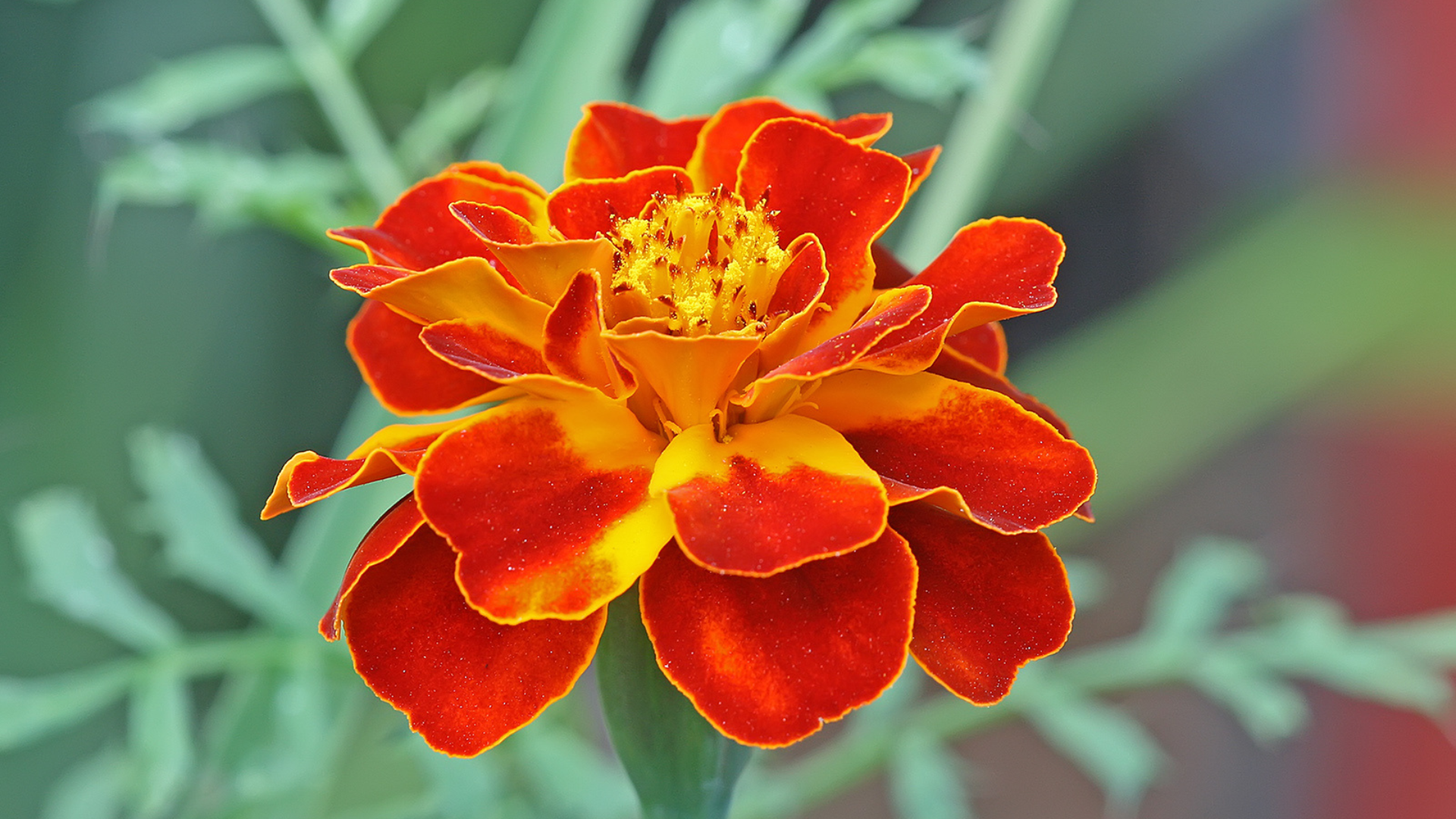
French marigolds are smaller and more compact than their African relatives. They are particularly effective in deterring deer with their sharp scent and tough foliage.
- Light: Full sun, but can tolerate partial shade.
- Moisture: Low to moderate moisture; drought tolerant once established.
- Soil: Well-drained, slightly acidic soil.
- Zones: 2-11.
- Features: Bright, multi-colored flowers with a pungent odor.
Janie Marigold
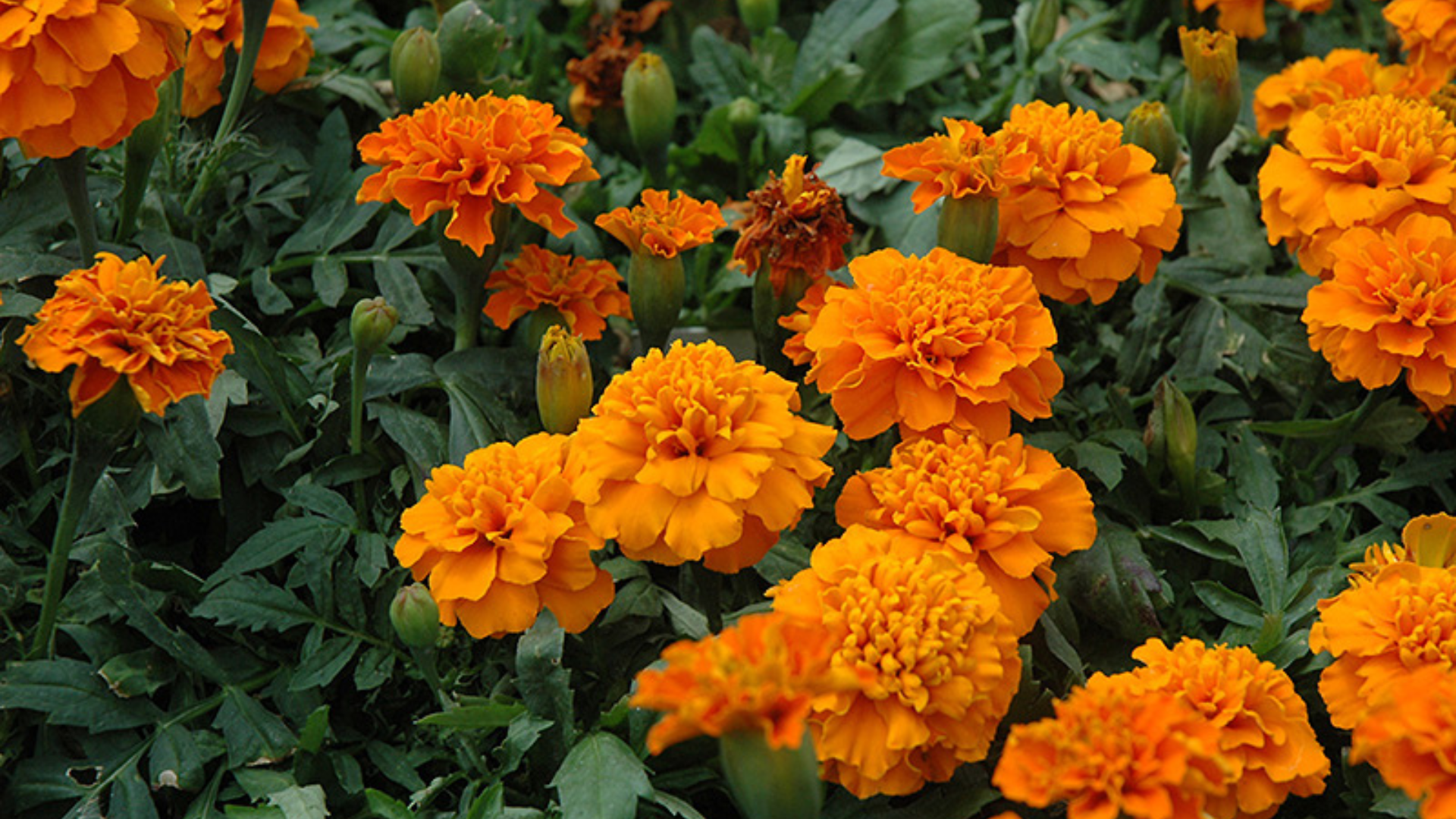
Janie marigolds are compact and offer a unique look with their bright, lively blooms. They are particularly effective at keeping deer at bay due to their strong aroma.
- Light: Full sun.
- Moisture: Regular watering; doesn’t like to stay soggy.
- Soil: Well-drained, sandy or loamy soil.
- Zones: 2-10.
- Features: Compact size with bold, colorful flowers.
Golden Gem Marigold
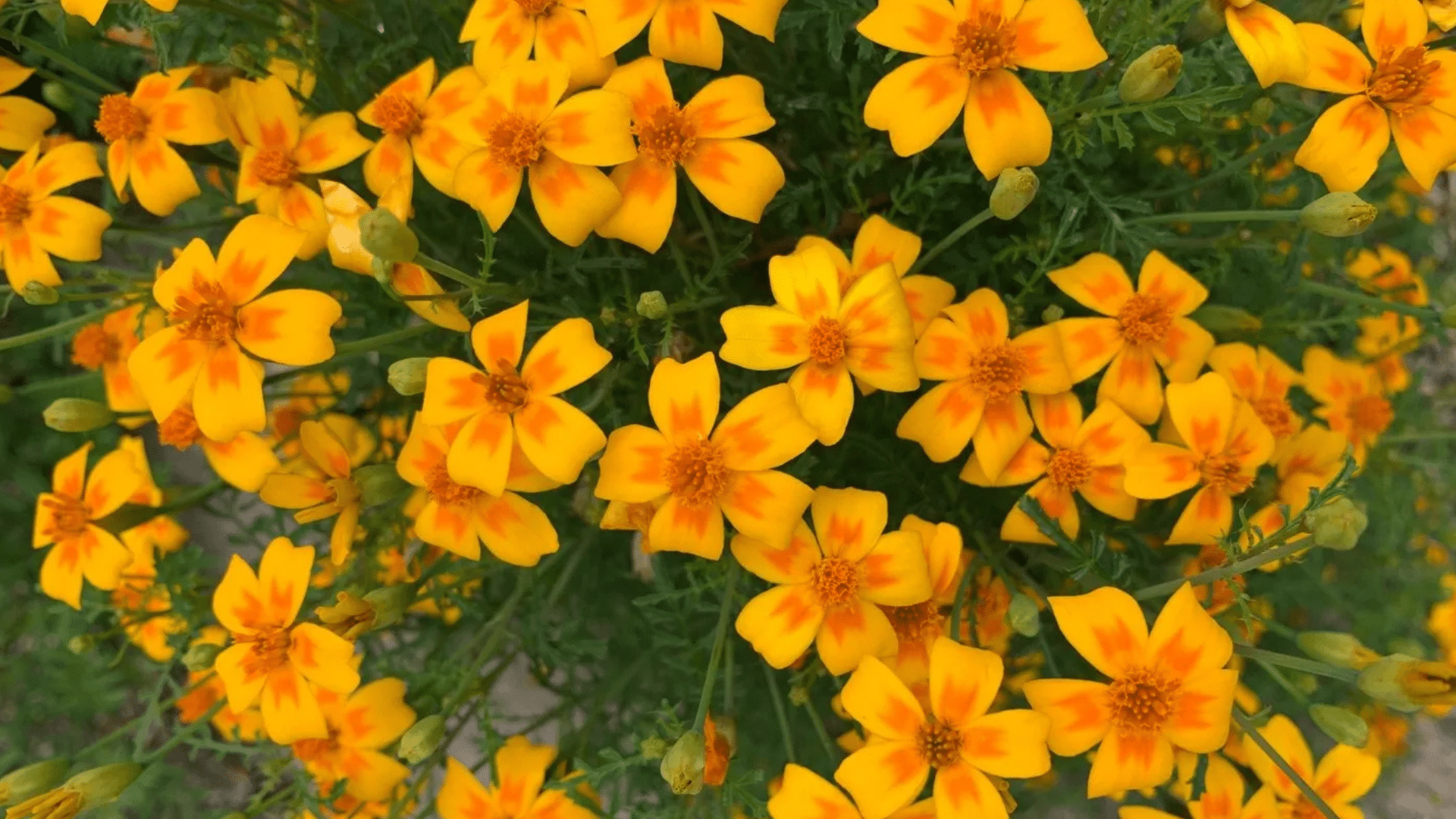
Golden Gem marigolds are a miniature variety known for their stunning gold-yellow blooms. They are incredibly resistant to deer because of their strong scent and tough petals.
- Light: Full sun.
- Moisture: Moderate moisture, well-drained soil is essential.
- Soil: Slightly acidic to neutral soil.
- Zones: 2-11.
- Features: Smaller blooms, great for containers or borders.
Hence, if you’re wondering are marigolds deer resistant, these four popular varieties can help reduce the risk of deer damage in your garden.
Whether you prefer larger blooms or compact plants, there’s a marigold variety for every garden.
Marigolds Vs. Other Deer-Resistant Plants
When considering deer-resistant plants, marigolds are a popular option, but they’re not the only choice. Comparing marigolds to other well-known deer-repellent plants can help you decide the best fit for your garden.
Keep in mind that while marigolds have a strong scent and bitter taste, there are other plants with similar or even stronger deer-repellent properties. So, are marigolds deer resistant compared to other plants? Let’s take a look:
| Plant Type | Deer Resistance | Key Features | Light Requirements | Soil Preference |
|---|---|---|---|---|
| Marigolds | Moderate | Strong scent, bitter taste, bright flowers | Full sun, 6+ hours | Well-drained, slightly acidic |
| Lavender | High | Strong scent, woody structure, evergreen | Full sun | Well-drained, alkaline |
| Yarrow | High | Tough, aromatic leaves, attracts beneficial insects | Full sun to partial shade | Well-drained, dry |
| Catmint | High | Aromatic, soft foliage, easy to grow | Full sun to partial shade | Well-drained, dry |
| Russian Sage | High | Aromatic, silver foliage, long-lasting flowers | Full sun | Well-drained, dry |
In conclusion, marigolds can be a useful addition to your garden, but other plants may provide even stronger protection from deer.
Tips for Using Marigolds to Deter Deer in Your Garden
If you’re wondering are marigolds deer resistant, here are a few practical tips to help you use marigolds effectively to keep deer away:
- Plant Marigolds in High-Traffic Areas: Marigolds are more likely to deter deer when placed near entry points or paths. Their strong scent can act as a natural barrier.
- Group Marigolds Together: Cluster marigolds to create a dense patch. Deer are less likely to venture through thick, aromatic patches of flowers.
- Mix with Other Deer-Resistant Plants: I’ve found that marigolds work best when paired with other plants known for their deer-repelling properties. This combination increases your chances of success.
- Plant Marigolds Around Vulnerable Plants: Surround your most at-risk plants with marigolds. Their strong scent can deter deer from grazing on nearby, more tender plants.
- Regularly Deadhead Flowers: Keeping your marigolds looking fresh and healthy by removing dead blooms can maintain their strong scent and maximize their deer-repelling power.
By following these tips, marigolds can be an effective tool in your deer-deterring strategy.
The Bottom Line
While are marigolds deer resistant may not have a straightforward answer, they do offer a practical solution for many gardeners looking to keep deer at bay.
Their strong scent, bitter taste, and lively flowers make them an appealing option, especially when combined with other deer-repellent plants. By planting marigolds in high-traffic areas, grouping them together, and regularly maintaining them, you can create an environment that’s less inviting for deer.
Ultimately, marigolds may not be foolproof, but they are a valuable tool in reducing deer damage in your garden.
Have you had success with marigolds or other deer-resistant plants? I’d love to hear about your experiences – feel free to share in the comments below!
Frequently Asked Questions
What Smell Do Deer Absolutely Hate?
Deer hate the smell of strong, pungent scents like garlic, lavender, marigolds, and mint. These smells repel them and discourage them from feeding on nearby plants.
What Annuals Will Deer Not Eat?
Deer tend to avoid annuals like marigolds, impatiens, begonias, and petunias due to their strong scent, texture, or bitterness, making them less appealing for grazing.
Do Marigolds Come Back Every Year?
Marigolds are annuals, meaning they don’t come back every year. You need to replant them each season to enjoy their bright flowers and deer-repellent qualities.


